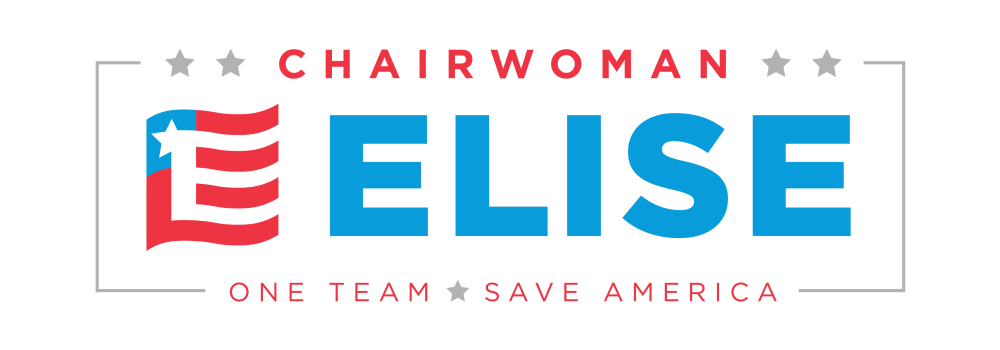Written by Cara Chapman in The Press-Republican on March 24, 2020
PLATTSBURGH — In a conference call with district media Monday, North Country Congresswoman Elise Stefanik (R-Schuylerville) stressed that people need to take the COVID-19 pandemic very seriously.
She also continued to push people to go to the U.S. Centers for Disease Control, State Department of Health and county public health offices for the most up-to-date guidance regarding COVID-19.
“Small decisions today can have very positive consequences if we work together as a community and just as a society.”
SUPPLIES A CHALLENGE
Masks and personal protective equipment (PPE) are critically important, and Stefanik said her office is working with the state to inform them of her counties’ priorities.
“While (President Donald Trump) has signed the Defense Production Act, I want to have that executed so that we are having a whole of government approach when it comes to the manufacturing of masks, PPE and testing supplies.”
Supplies are a challenge for both New York state counties and those across the country, Stefanik added.
She said businesses have reached out about selling masks and partnering to manufacture ventilators.
“We are working very, very closely with county public health offices and the state to ramp that up as quickly as possible.”
PHASE 3
Regarding Phase 3 of Congressional COVID-19 relief, which the U.S. Senate is currently negotiating, Stefanik said her priority was economic relief and a rescue package for small businesses, including low-interest and forgivable loans.
“We want to make sure that small businesses have the tools they need and the liquidity they need to continue to invest in their workforce during this challenging time.”
Stefanik added that rural hospitals, health care providers and community health centers will need significant financial support, and that a stabilization fund as part of Phase 3 would help counties as quickly as possible.
And she wants to make sure that self-employed people and independent contractors can also access funding through small business emergency loan programs.
‘GET THIS DONE’
So far, Senate Democrats have blocked the $1.8 trillion Phase 3 package, citing concerns about worker protections and lax regulations on corporate bailouts, among other components.
“The Senate Democrats need to put aside their partisan wish list and get this done,” the congresswoman said.
She argued that time is of the essence, and cited a provision of the bill that would forgive loans to small businesses with fewer than 500 employees if they put that money toward payroll, while larger businesses — those with more than 500 employees — will be required to pay those loans back.
“There are issues related to the Green New Deal that the Democrats are trying to put in.
We are going to have lots of time to discuss those other issues, we need to act now.”
Stefanik said she did not support companies being able to use federal funds for stock buybacks.
“The lens with which I am focusing on this is my district and the backbone of my district are small businesses.”
REMOTE VOTING
In light of multiple Senators and House members entering voluntary or mandatory self-quarantine due to COVID-19, Stefanik has advocated for remote voting.
She said such a move would take some fresh thinking, noting a generational divide on the issue, and a rule change to give flexibility to vote electronically.
“Every district across this country deserves a vote whether your member is in self-quarantine or not, whether your member has coronavirus or not.”
Stefanik believes it is possible to do this securely and to authenticate members’ votes.
DISTRICT CHALLENGES
Stefanik said New York-21 faces particular challenges as a rural border district.
She noted issues with testing supplies, preventingconfirmed COVID-19 case numbers from showing a complete snapshot of people who have COVID-19 or have been exposed to it.
From Stefanik’s perspective, there has been a lot of focus on the “epicenter” downstate, so she has put in requests to make sure North Country health care workers have PPE and masks.
Telehealth services and schools transitioning to electronic learning face issues with rural broadband coverage, and services that deliver meals to seniors have to travel hundreds of miles and need more volunteers.
And a significant amount of the workforce is comprised of people who commute across the U.S.-Canada border on a daily basis, Stefanik said.
MOST VULNERABLE
Stefanik urged people to think about their neighbors and loved ones who are seniors.
“This is about protecting the most vulnerable,” she said, adding that even young people are not immune to the virus.
“We want to be able to tackle this and beat this as quickly as possible and the only way to do that is to follow the advice which is to make sure that you’re staying home, make sure that you’re washing hands, make sure that you’re limiting the ability for this virus to transmit.
We will beat this but we all have to be a part of this.”
Email Cara Chapman:
Twitter: @PPR_carachapman
You can read the full article at https://www.pressrepublican.com/





